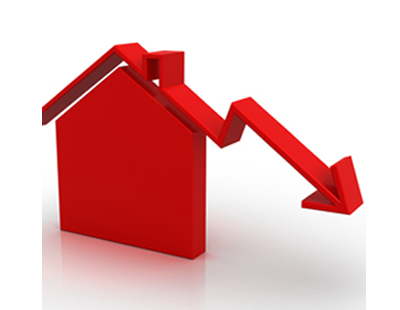First-time buyers are now facing up to a nine-year wait to save enough of a deposit to get on the property ladder, and rising inflation could delay things further.
With inflation expected to rise above 10%, online mortgage broker Mojo Mortgages, analysed the knock-on impact on first time buyers saving for a deposit.
The broker analysed the impact of a 10% reduction in savings for an individual earning an average salary of £29,489 saving 20% of their take home pay, using the 50/30/20 rule, for a 15% deposit on an average property priced at £290,141.
The rule suggests that savers put 50% of their income towards “needs,” 30% to “wants,” and 20% to financial goals.
At this rate of saving, it would take a buyer nine years to build a 15% deposit of £43,521 but this would double if their savings were reduced by 10% due to the cost of living.
Even for buyers saving for a smaller 5% deposit, the impact of inflation would add an extra three years of saving.
The smaller deposit would also result in a more limited choice of mortgage products and higher interest rates, Mojo Mortgages warns.
The data shows that first time buyers in the country’s most expensive cities would be hit hardest by inflation, with those looking to get on the property ladder in London, Oxford and Bath needing an extra 17 years to save for a deposit to account for inflation.
At the other end of the scale, first time buyers in Birkenhead would require a shorter, but still lengthy, period of four and a half extra years to save for a 15% down payment.
Richard Hayes, founder of Mojo Mortgages, said: “Record house price growth and inflation hitting a 40-year high will impact everyone looking to buy a house, but the current economic situation is hitting first time buyers particularly hard.
“To compound matters, the cost of living is increasing just as people are looking to return to a more normal social life, which makes cutting back on discretionary spending difficult.
“Rising interest rates will also help people with savings, but it will take longer for these savings to be passed on to savers and more people will be forced to dip into their savings to meet rising household bills.
“The good news is that mortgage rates are still relatively low, so there are some great deals available for those who are able to save a deposit.
“Not everyone is fortunate to have financial support from their parents, but if first time buyers are able to cut back on their spending, set strict budgets and potentially buy a property with friends or partners, the goal of collecting the keys to their first property could be more achievable.”
It comes as brokers have spotted a trend for homebuyers and owners seeking green mortgages.
Legal & General Mortgage Club has announced the top searches from its SmartrCriteria tool in April.
The tool tracks product searches from more than 8,000 advisers, shedding light on the purchase trends witnessed by brokers across the industry.
April saw a 24% rise in searches using environmental criteria, albeit from a low base, according to the research.
Legal & General Mortgage Club suggested this is an indication of a growing number of products in the green mortgages space or an uptick in demand from borrowers for green products, including those that can help homeowners make renovations to improve their home’s energy efficiency rating.
Agents such as Savills have reported increased interest from buyers in homes with higher energy performance certificate ratings.
Brokers also reported that demand from overseas customers climbed by a third and searches for self-employed sole traders went up by 43%.
As in March, ‘visa’ was the most-searched criteria point in April, with the volume of searches only dropping by 4% from the previous month.
Kevin Roberts, director of Legal & General Mortgage Club, said: “The findings are another reminder of the resilience of the UK property market.
“Despite wider economic pressure, demand so far has remained steady, and in some areas of the market is even rising. This includes a rise in the number of borrowers seeking green mortgages.”
|
Location
|
Average property
price (17 May 2022)
|
Average annual
salary
|
15% deposit
|
20% of budget per month
towards deposit (individual)
|
10% of budget per month
towards deposit (individual)
|
Years to save 15% deposit (individual
saving 20% of earnings per month)
|
Years to save for 15% deposit (individual
saving 10% of earnings per month)
|
Extra years needed to save for
deposit due to cost of inflation (individual)
|
|
London
|
£722,668.00
|
£42,001.00
|
£108,400.20
|
£530.98
|
£265.49
|
17.0
|
34.0
|
17.0
|
|
Bath
|
£539,833.00
|
£29,940.00
|
£80,974.95
|
£396.80
|
£198.40
|
17.0
|
34.0
|
17.0
|
|
Oxford
|
£579,526.00
|
£33,263.00
|
£86,928.90
|
£433.77
|
£216.89
|
16.7
|
33.4
|
16.7
|
|
Woking
|
£559,138.00
|
£34,664.00
|
£83,870.70
|
£449.36
|
£224.68
|
15.6
|
31.1
|
15.6
|
|
Poole
|
£438,637.00
|
£28,753.00
|
£65,795.55
|
£383.59
|
£191.80
|
14.3
|
28.6
|
14.3
|
|
Brighton
|
£452,577.00
|
£30,946.00
|
£67,886.55
|
£407.99
|
£204.00
|
13.9
|
27.7
|
13.9
|
|
Watford
|
£451,976.00
|
£32,965.00
|
£67,796.40
|
£430.45
|
£215.23
|
13.1
|
26.3
|
13.1
|
|
Sutton Coldfield
|
£391,630.00
|
£28,107.00
|
£58,744.50
|
£376.41
|
£188.20
|
13.0
|
26.0
|
13.0
|
|
Slough
|
£445,073.00
|
£33,198.00
|
£66,760.95
|
£433.05
|
£216.52
|
12.8
|
25.7
|
12.8
|
|
Hastings
|
£343,040.00
|
£24,984.00
|
£51,456.00
|
£341.67
|
£170.83
|
12.6
|
25.1
|
12.6
|



























Join the conversation
Be the first to comment (please use the comment box below)
Please login to comment